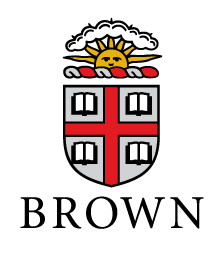Teaching exchange

For the past decade, doctoral students at Brown University have been learning how to succeed on the other side of the desk by teaching courses at Wheaton College. This year, more Brown students from a wider array of disciplines are getting that chance with the expansion of the Brown-Wheaton Teaching Fellowship program.
“We typically have two fellows each year and this year decided to expand the program,” said Gail Sahar, program coordinator and associate provost at Wheaton. “In the past, we hadn’t had many students in the sciences; it tended more toward the humanities and the social sciences. So this year we’re really happy to have two students teaching in the physical sciences as well.”
The teaching fellowship got its start in 2004, building off an already strong relationship between the two schools—for years, Wheaton students have been able to cross-register for courses at Brown in subjects not covered by the Wheaton curriculum.
This fall, three Ph.D. candidates are teaching here: Marius Draeger, from Braunschweig, Germany, is leading students in “Organic Chemistry II”; Rebecca Mason, from Westfield, N.J., is teaching “Principles of Programming Language”; and Steven Swarbrick, from San Jose, Calif., is bringing to campus a self-designed course for juniors and seniors titled “Green Shakespeare,” which combines early modern literary studies with environmental studies.
A fourth fellow, Laura Perille of Denver, Colo., will lead a history course in the spring titled “Cross-Cultural Interactions in the Early Modern World.”

“As a graduate of Colby College, I recognize the great value of a small liberal arts education and appreciate the ways in which its emphasis on critical thinking, interdisciplinary perspectives and creativity enhances students’ learning experience,” Perille said. “I look forward to working with a community of colleagues with whom I might share my research, benefit from their perspectives and gain insight into their own projects.”
Draeger, who earned his bachelor’s and master’s degrees from Braunschweig University of Technology—a public university in Germany with about 17,000 students—said he wanted the experience of teaching in an environment such as Wheaton’s.
“Besides the experience of teaching a complete class on my own,” he said, “I also hope to become a better teacher and gain more insight into life at a liberal arts college.”
Along with being at the front of a classroom, the teaching fellows benefit from the advice and support of Wheaton faculty.
“The fellowship gives them the experience of finding out what it’s like to be in this kind of community,” Sahar said. “They get a mentor here at Wheaton who helps them develop a syllabus, comes and observes their classes, and checks in with them to give them advice as the semester goes on.”
The relationship also benefits Wheaton, allowing departments to offer more courses and providing students with a different perspective.
“The Brown students rave about the experience they have here, and they typically get great course evaluations, so our students love them,” Sahar said. “It’s really a win-win relationship.”
Rebecca Shin ’17 took two courses taught by Brown Fellows last fall, a philosophy course, “The Nature and Limits of Knowledge,” and a religion course, “Demons, Melancholy and Madness.” She appreciated the instructors’ efforts both in the classroom and after class, when they mentored her on how to become a better writer.
“Overall, I love the idea of having Ph.D. students from Brown coming to teach at Wheaton,” she said. “There is this special bond as these students grow into their teaching and how the students at Wheaton grow in a not-so-traditional learning environment. It’s a mutual, symbiotic relationship.”
